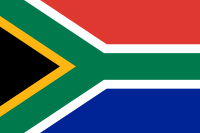 [South Africa Department of Trade and Industry, Link] The National Development Plan (NDP) calls for greater emphasis on innovation, improved productivity, more intensive pursuit of a knowledge economy and better exploitation of comparative and competitive advantages. Intellectual property (IP) is an important policy instrument in promoting innovation, technology transfer, research and development (R&D), industrial development and more broadly – economic growth.
[South Africa Department of Trade and Industry, Link] The National Development Plan (NDP) calls for greater emphasis on innovation, improved productivity, more intensive pursuit of a knowledge economy and better exploitation of comparative and competitive advantages. Intellectual property (IP) is an important policy instrument in promoting innovation, technology transfer, research and development (R&D), industrial development and more broadly – economic growth.
Government’s experience to date has shown that IP is a vast, interdisciplinary field that implicates a broad range of government departments and agencies. Therefore, it is impossible for one Ministry, absent extensive inter-governmental consultation and collaboration to present a broadly representative governmental perspective. The same can be said of the numerous sectors of society that are affected by IP.
The purpose of this document is not to prescribe South Africa’s IP policy position, but to put forward the perspective of the dti in a consultative instrument to facilitate what will be continuous engagement with governmental partners and society at large. This in our view is the best way to render the formulation of South Africa’s IP policy a joint project that adopts a coordinated approach.
The extent of public engagement; the internal capacity of governments on IP matters; and the degree of government co-ordination are key factors in national IP policy formulation and law reform. The dti aims to ensure that the development of South Africa’s IP policy takes into account these fundamental principles. The IP Consultative Framework will serve as a tool in pursuing this approach.
South Africa requires a coordinated and balanced approach to IP that provides effective protection of IP rights (IPRs) and responds to South Africa’s unique innovation and development dynamics. South Africa’s IP Policy must engender the ethos of the Constitution and complement the country’s industrial policy and broader socio-economic development objectives. Hence, the IP Policy must be informed inter alia by the Constitution, NDP, the National Industrial Policy Framework (NIPF) and the various iterations of the Industrial Policy Action Plan (IPAP). It should also be aligned to the country’s objectives of promoting local manufacturing, competitiveness and transformation of industry in South Africa.
Increasingly, IP is discussed in various international forums such as the World Intellectual Property Organization (WIPO), The World Trade Organization (WTO), the Group of Twenty (G20), the Organization for Economic Co-operation and Development (OECD) and in engagements with trade partners. This requires a coordinated South African approach to IP matters informed by South Africa’s development imperatives.
The South African Constitution guarantees the right to property and that no law may permit arbitrary deprivation of property. In terms of the Constitution, property is not limited to land and would by implication include IP. This interpretation is consistent with Constitutional Court jurisprudence. In addition, the Constitution provides a balanced approach to property rights by also taking into account public interest. In this regard, public interest includes the nation’s commitment to bring about reforms that promote equitable access. A balanced approach will be taken in the development of the IP policy in line with the Constitution.
As stated in paragraph 7 of the African Group’s proposal for the establishment of a Development Agenda for WIPO:
“IP is just one mechanism among many for bringing about development. It should be used to support and enhance the legitimate economic aspirations of all developing countries including LDCs, especially in the development of their productive forces, comprising of both human and natural resources. IP should therefore, be complementary and not detrimental to individual national efforts at development, by becoming a veritable tool for economic growth”.
This document raises discussion points and proposes a way forward for South Africa to ensure a development-oriented IP policy which is cognizant of the international, regional and domestic context. As such, it proceeds from the basis that the IP policy should advance the following objectives:
a. Engender the ethos of the Constitution.
b. Align the country’s IP regime to its NDP and industrial policy.
c. Develop a co-ordinated intergovernmental approach to IP.
d. Strike a balance between the creators and users of IP.
e. Stimulate innovation.
f. Facilitate the development of key industries while striking a balance with the public interest.
g. Contribute to the attraction of foreign direct investment and technology transfer.
h. Adopt a coordinated approach to IP in sub-regional, regional and international forums.
i. Promote public health.
Click here for the full Intellectual Property Consultative Framework (PDF)




